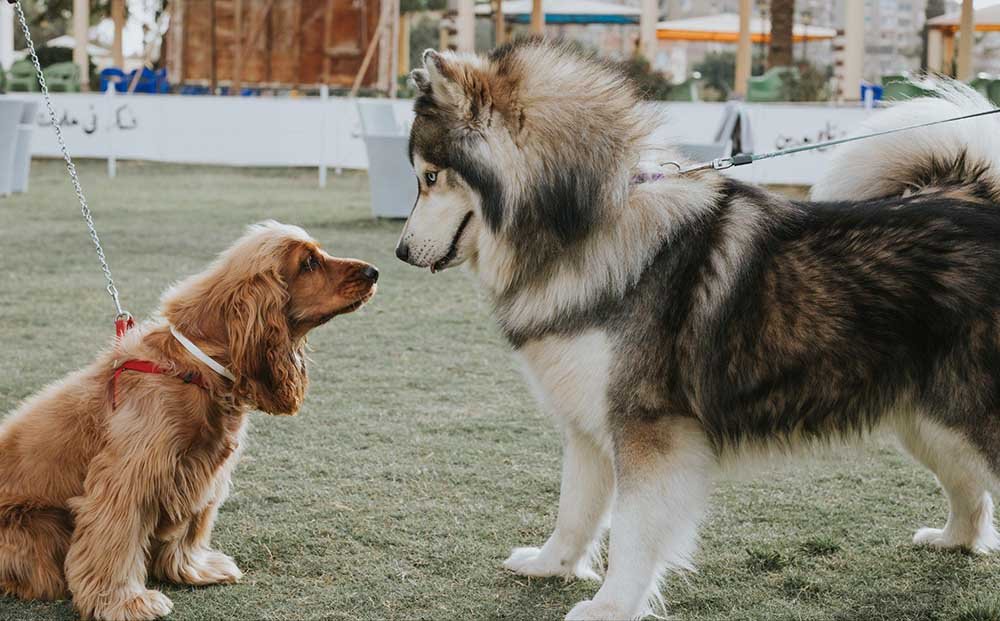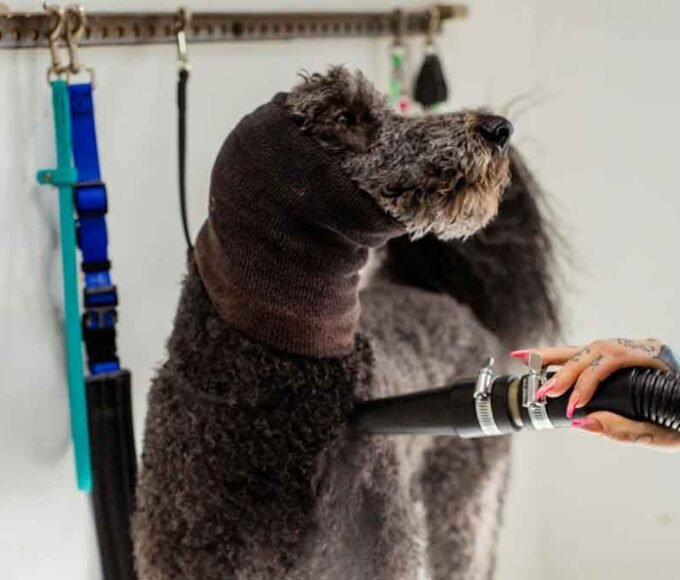Dogs come in all shapes and sizes, each with their own set of needs and requirements. As responsible pet owners, it’s our duty to understand and cater to these needs to ensure our furry friends live happy and healthy lives.
In this article, we’ll take a look into the world of dog breeds, focusing on the differences between the needs of large and small dogs. By the end of this journey, you’ll be equipped with the knowledge to provide tailored care that suits your canine companion, no matter their size.
Exercise and Activity Levels
Large dog breeds are renowned for their boundless energy levels, requiring ample exercise to keep them both physically and mentally engaged. Breeds like Labradors, German Shepherds, and Huskies thrive on activities like long walks, runs, and even agility training.
On the other hand, small dog breeds often have lower energy levels and may be content with shorter walks and indoor play. It’s important to strike a balance, ensuring that your large dog gets the exercise they need without overwhelming your smaller dog.
Nutritional Considerations
When it comes to nutrition, size plays a crucial role. Larger dogs have higher calorie requirements to sustain their active lifestyles, while smaller dogs may need smaller portions to avoid excessive weight gain.
Consult your veterinarian to determine the appropriate portion sizes and types of food for your dog’s size.
Additionally, be aware of breed-specific dietary considerations, as some breeds are more prone to certain health issues that can be managed through proper nutrition.
Grooming and Maintenance
Grooming needs can vary greatly between large and small dog breeds. Large dogs often have thick coats that require regular brushing to prevent matting and reduce shedding. Smaller breeds, with their delicate coats, might need less frequent grooming, but their coats may tangle more easily. Regardless of size, regular grooming sessions offer not only aesthetic benefits but also contribute to your dog’s overall health and comfort.
Health Concerns
Each size category comes with its own set of health concerns. Large dog breeds are more susceptible to joint issues, such as hip dysplasia, due to their weight and build. Smaller dogs, while generally living longer, may be prone to dental problems due to overcrowding in their mouths.
Regular veterinary check-ups are crucial to catch and address these concerns early, ensuring a higher quality of life for your furry friend.
You can enhance your dog’s diet with collagen by bringing notable benefits, positively impacting their quality of life by supporting joint health and overall vitality. Mighty Munch offers such treat for your dog making sure they get the proper nutrients they needed.
Living Space
According to a recent publication for Happy Pet Deals, your living environment plays a pivotal role in your dog’s well-being. Larger breeds might feel cramped in smaller apartments, while smaller breeds might find larger spaces overwhelming. Understanding your dog’s comfort and adapting your living space accordingly is essential, and consulting with dog daycare experts can offer valuable insights.
For larger dogs, regular outdoor access is important, while smaller dogs may be content with indoor play and short walks.
Training Approaches
Training methods should be tailored to your dog’s size, temperament, and capabilities. Larger breeds might require more intensive training due to their strength and energy levels. Smaller dogs, though more manageable in size, might need extra socialization to avoid developing “small dog syndrome.”
Positive reinforcement and consistency are key across the board, ensuring effective training outcomes.
Social Interaction
The way dogs interact with humans and other pets can vary greatly based on their size. Larger dogs might inadvertently intimidate others due to their size, while smaller dogs might approach interactions with more caution.
Proper socialization from an early age is crucial for both size categories. Exposing them to various environments, people, and animals helps develop well-adjusted and confident pets.
Toys and Enrichment
Mental stimulation is essential for all dogs, regardless of size. Larger dogs might benefit from puzzle toys and interactive games that challenge their problem-solving skills. Smaller dogs may enjoy toys that they can manipulate easily.
Regular mental enrichment not only prevents boredom but also strengthens the bond between you and your pet.
Travel Considerations
Traveling with your furry companion requires careful planning, especially when their size comes into play. Larger dogs might need more spacious accommodations, while smaller dogs are more portable.
Ensure your dog’s comfort during travel by providing necessary amenities, adhering to airline regulations, and researching pet-friendly destinations.
Bonding and Companionship
The emotional connection between you and your dog knows no size limits. Large and small dogs alike are capable of forming strong bonds with their owners. Spend quality time with your pet, engaging in activities that cater to their preferences.
From cuddling on the couch to outdoor adventures, the companionship you share is a special and unique experience, regardless of your dog’s size.
Conclusion
Caring for a dog, whether large or small, requires a deep understanding of their unique needs. By embracing the differences in exercise, nutrition, grooming, health concerns, living space, training, social interaction, enrichment, travel, and companionship, you can provide the best possible care for your furry friend.
Remember, it’s not about size; it’s about the love and attention you invest in ensuring their well-being and happiness throughout their life journey.
















